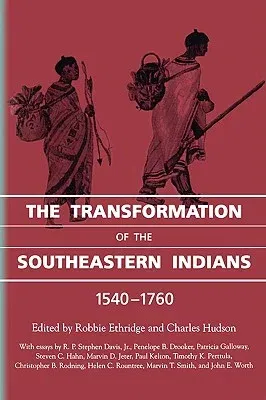The Transformation of the Southeastern Indians, 1540-1760Paperback, 1 October 2008

Qty
1
Turbo
Ships in 2 - 3 days
In Stock
Free Delivery
Cash on Delivery
15 Days
Free Returns
Secure Checkout
Part of Series
Chancellor Porter L. Fortune Symposium in Southern History
Part of Series
Chancellor Porter L. Fortune Symposium in Southern History S
Print Length
408 pages
Language
English
Publisher
University Press of Mississippi
Date Published
1 Oct 2008
ISBN-10
1604731842
ISBN-13
9781604731842
Description
Product Details
Book Format:
Paperback
Country of Origin:
US
Date Published:
1 October 2008
Dimensions:
23.04 x
15.42 x
2.54 cm
ISBN-10:
1604731842
ISBN-13:
9781604731842
Language:
English
Location:
Jackson
Pages:
408
Publisher:
Series:
Weight:
598.74 gm

